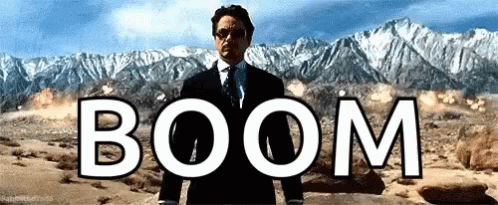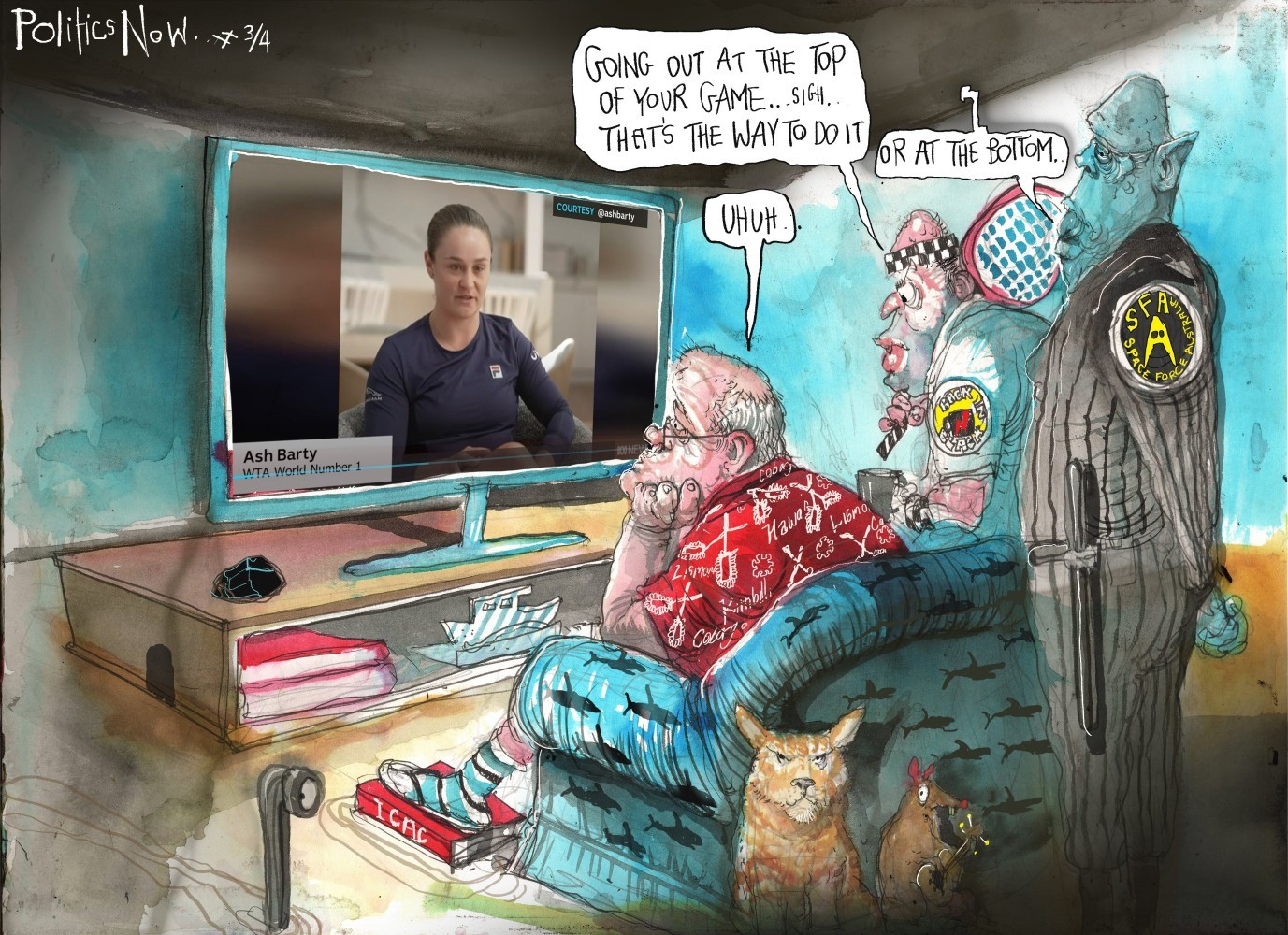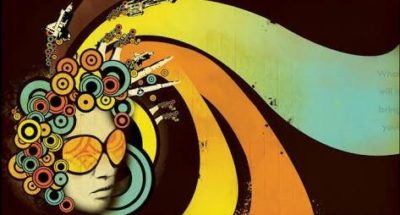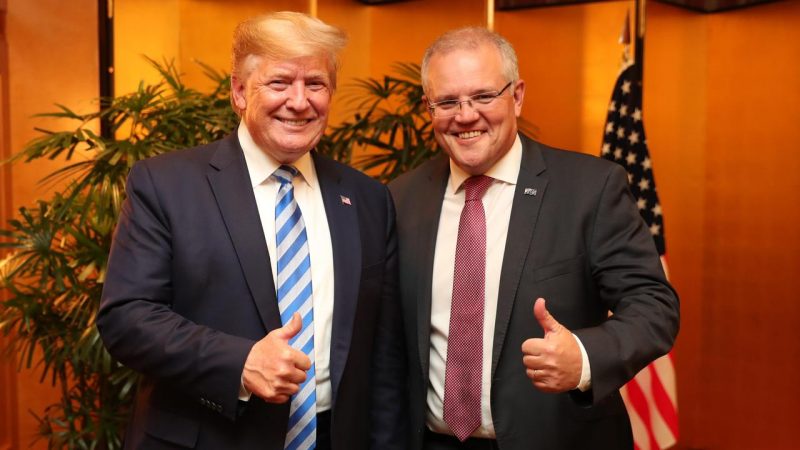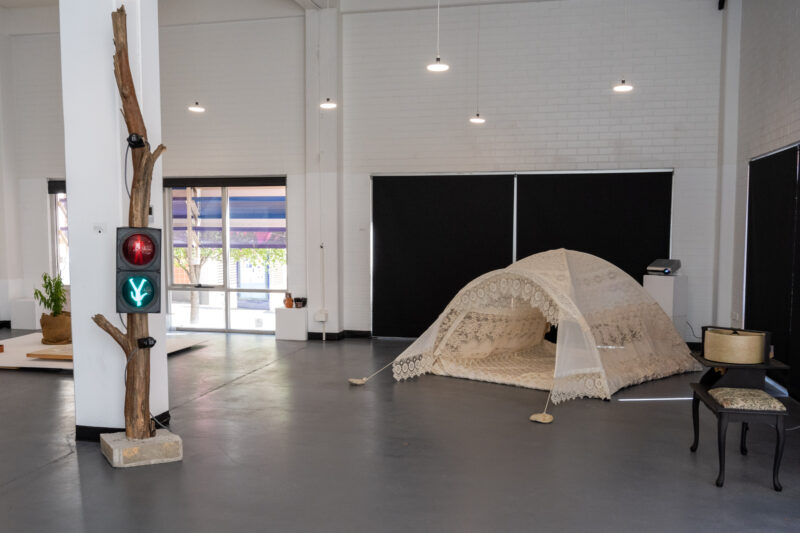Musings about BLOWING up Australia’s narrative (and your own)
As we head towards a federal election, ho hum, it is a worthy time to reflect on the importance of feeling okay with starting a fresh narrative, a new identity. It’s not easy to start or change, but at different times in life, business and politics it is time for a redrafting.
Sunday just gone, less than a week out from an election Scott Morrison came out to the media acknowledging that his bulldozer narrative is no longer best as a leader.
Politicians shifting their narrative in the lead up to an election, typically following continued unsettling polling results, is nothing new. Australia’s first female Prime Minister Julia Gillard announced her ‘the Real Julia’ narrative in the lead up to the 2010 Federal Election.
“I want to throw away [the] rule book, be out and about, meeting people, talking to people, making myself available. Up to this point I’ve gone with the standard campaign model… very risk averse… [but] my style is to play my own again, to be out there taking a few risks.” Julia Gillard
Politicians are typically strategic, even if non-authentic, about their narratives, particularly in the lead up to an election. But, can politicians actually change Australia’s narrative?
More about politics later.
It has been some weeks since my last article.
After not missing a week writing since the start of 2017, I put the pen down in March.
I started writing this piece when in COVID positive isolation – seven days one room. It was the week Ash Barty retired from professional tennis. My COVID positive week was a time separated from my COVID negative family, isolated in the remainder of our house. The silver lining from isolation is time to pause, think, to clean out the wardrobe and sort socks.
While few have likely wished to catch COVID, the isolation is rare and priceless time to stop. Much like a great deal of the time-warp since 2020, we’ve all had time to review our priorities and reshape aspects of our lives. Personally, with our first born child recently turning 18, getting her licence, boyfriend, jumping into university and changing her narrative, this motivated a reflection of my own. The good bits and dysfunctional aspects, what I like doing, and wish I had more time for. It has been a time to reflect professionally on what next, and how the disruption has shifted how I work.
Reflection like many others over the recent chaotic years.
“In the midst of chaos, there is also opportunity” Sun Tzu
New hobbies have being added. I’ve been finding more time for practicing my new Stratocaster, a narrative comedy writing course and purchased a new surfboard (yet to use). My efforts are going into beating my Parkrun PB and finding more time for mountain biking in the Adelaide Hills, plus listening to and reading many of the narratives of those I admire from Dave Grohl, to Steve Martin, Mel Brooks, Rick Rubin, Paul McCartney and Flea.
There’s so much one can learn from the stories of others. Listening to Red Hot Chili Peppers founding member Flea I learnt of how the Melbourne born boy started life in a safe and suburban Melbourne home, then his mum remarried to a troubled jazz musician in New York. Flea’s mum was drawn to the bohemian life. Flea’s childhood was often hanging on the streets, experimenting with drugs, where he met fellow Chili Peppers founder Anthony. A rocky childhood, and introduction to Jazz music meant a narrative far from suburban.
At the end of 2021 we were also motivated in the redrafting of Square Holes’ narrative after 17 plus years in business. We’ve had a couple years of COVID chaos induced high research demand, with clients pondering “what next?” Many of our projects have expanded our own thinking into new cultures and markets. It seems like a waste to not renew one’s narrative at such a fundamental shift in the world, it’s people and cultures, and how we live and work.
During my writing pause, I traveled to my birth place of Swan Hill for an Uncle’s funeral. Ken was a plumber by trade, my Dad Trevor’s, older brother. Dad was one of six brothers and two sisters. I last visited more than 15 years ago for my Grandfather’s funeral, and hadn’t really spent much time there growing up, leaving for Melbourne when I was four. It was nice to reacquaint with family, including the long drive there and back with mum, and reflect on what has changed and not. (I snapped the picture below of the first house I lived in).
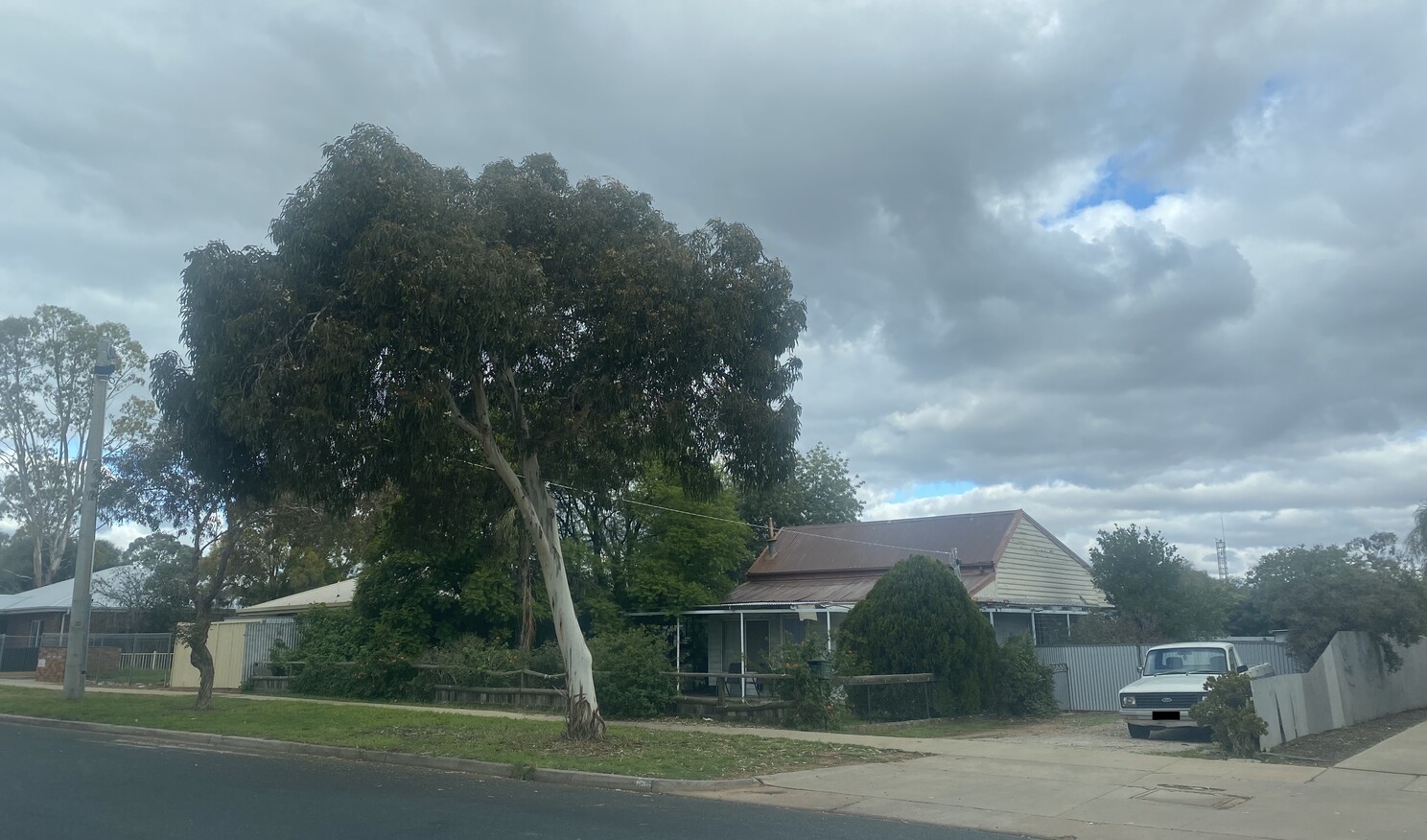
Going back to the start has a way of reminding us where we came from, truths and new narratives, and highlighting that life is far less linear than anticipated. This quote from Steve Jobs about understanding the journey looking back is quite insightful.
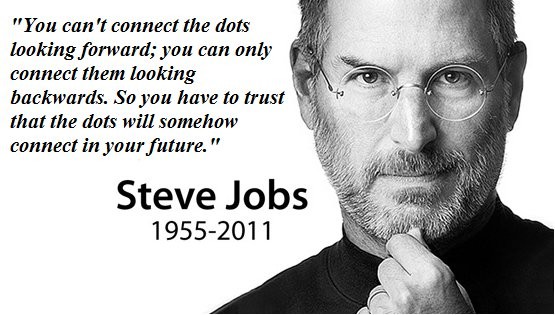
I’ve always been a fan of Jerry Seinfeld’s writing strategy to avoid procrastination, of simply not breaking the chain, i.e. writing every day. Consistency is the best way to avoid procrastination. My writing for the past approaching six years was inspired by this. Being perfect every day isn’t the measure of success, but such discipline avoids procrastination.
But, even with such discipline, there is a moment when it’s time to stop.
“I’m TIRED of being funny” Jerry Seinfeld
Jerry Seinfeld in a 1998 interview post the last episode the final episode of Seinfeld after 180 episodes over nine years 1989 to 1998.
Sometimes one chapter ends to allow for a new, ideally at the top of your game.
When Ash Barty resigned from professional tennis, it likely took many by surprise.
“Today is difficult and filled with emotion for me as I announce my retirement from tennis.” Ash Barty
It was March 23rd 2022, and at the tender age of 25 when many young people are still living with their parents, Australia’s best tennis player in history, calls ‘Match’ on her profession.
A wonderful role model, person, sporting superstar decided it was time for a new phase.
Such self-awareness to know herself and move on with her life.
Not all have such self-awareness, humility and confidence.
Around the same time of Barty’s resignation, I watched a video clip from Australian music anarchy royalty Nick Cave talking about his upcoming film ‘This much I know to be True.’ (released globally last Wednesday).
Cave’s sentiment different but similar to Barty’s, both important perspective.
“Some years ago I would have defined myself as a musician, or a writer, and I’m trying to ween myself off those definitions of myself that are about my occupation, and see myself as a person, as a husband, as a father. As a husband, and a father, and friend, and citizen that makes music and writes, rather than the other way around.” Nick Cave
Defining one’s narrative is important to who we are, how we behave and how we are perceived. Our values, that likely evolve over time, start from a young age and define us.
The below quote comes from a young Australian from Square Holes research since 2020 exploring loneliness, mental health and finding one’s identity.
“You’re reaching the point where you’re just ending puberty and you’re escalating from between being a kid and into an adult and you just feel very isolated… With the whole trying to look at your future prospects and stuff like that, you can get very much absorbed into the ideas of looking into the future. And then you slowly draw yourself away [from others] because you’re starting to have a narrow mind towards what you want to do and how you’re going to do it. And it leads to you being somewhat isolated” (Male, Aged 18)
In Australian, people aged 16-24 have the highest levels of loneliness and mental health challenge across age groups. Suicide is the leading cause of death of Australians aged 15-44, with a lack of connection, and challenges finding their identity, and not yet life resilient.
Leading causes of death in Australia, by age group, 2017–2019
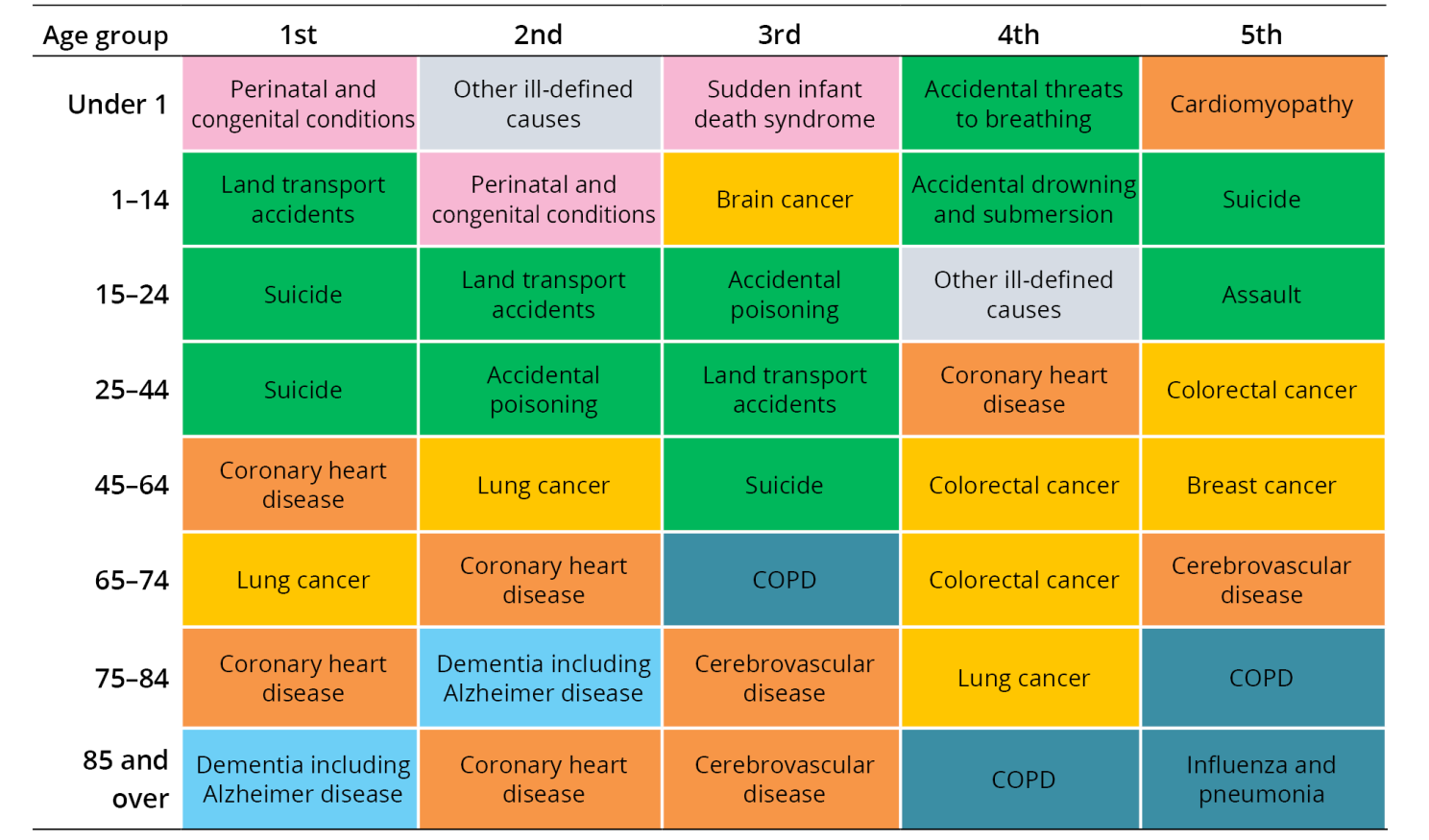
It’s a complex to ponder one’s identity. Other young people are hyper confident, even naive, about the future and excited about embracing it. There’s not one size fits all.
With age comes a level of resilience and reality, that provides clarity, and realisation that one’s narrative evolves over time, just like Morrison, Gillard, Barty and Cave. An evolving narrative is important for everyone, individually and collectively.
In my previous LinkedIn articles this year I’ve reflected on Australia’s narrative, from our multiculturalism versus homogeneity, opportunities for young people, the tall-poppy syndrome, sense of fairness and Australia’s reliance on being lucky, rather than clever.
Australia in its own right is a relatively young country often with an identity crisis. A narrative that many do not align with, and a desire to re-imagine Australia for the future. We have a complex history of stolen land, and a new narrative yet to be resolved.
Australia is also a wealthy country, ranking among the world’s richest, with a low level of manufacturing complexity. Australia is a strong exporter of natural resources, but weak in value added products. As coal power declines and drawing on our natural resources less acceptable, Australia will likely face economic challenge.
The Atlas of Economic Complexity was built at the Harvard Kennedy School of Government, The Atlas is powered by Harvard’s Growth Lab. The report for Australia notes the following rather concerning assessment …
“Australia is less complex than expected for its income level. As a result, its economy is projected to grow slowly. The Growth Lab’s 2029 Growth Projections foresee growth in Australia? of 2.5% annually over the coming decade, ranking in the bottom half of countries globally.”
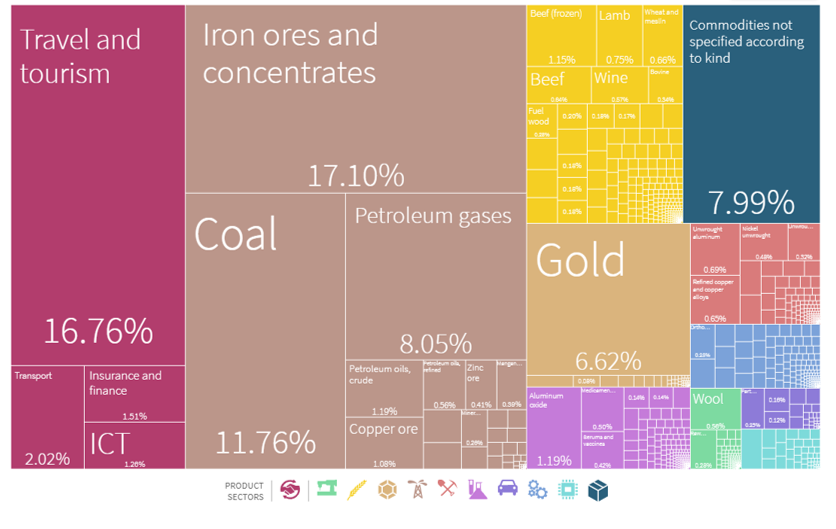
Australia is the 8th richest country per capita of the 133 studied, but 86th most economically complex. Our economic complexity index ranking (ECI) has declined from 55th in 1995.
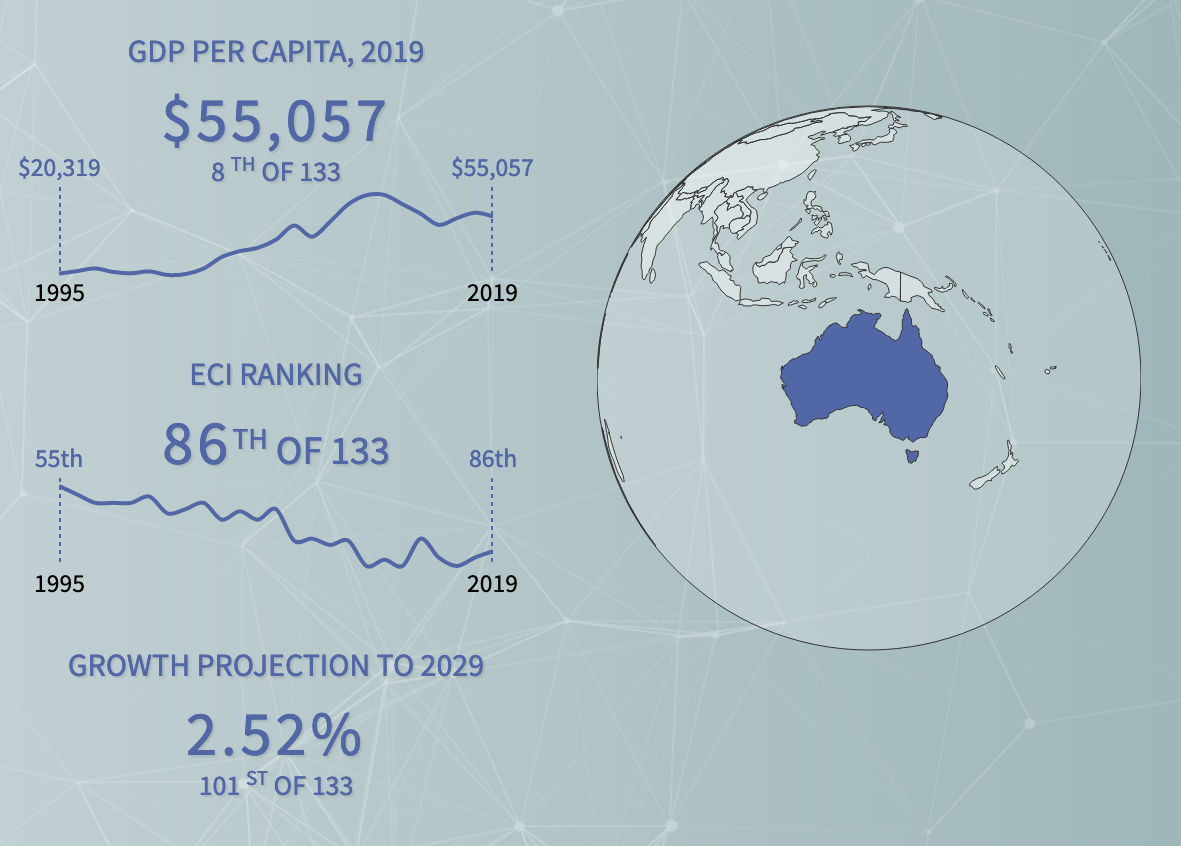
Australia also ranks low on the Global Innovation Index, 25th in 2021, a decline from 2020.
Australia ranks moderate to low on other measures of ‘clever.’
Why is Australia seemingly less clever and innovative than we’d like to be (or think we are)? A lack of sufficient government and other funding and support for research and development, fewer high level universities compared with larger countries, and our small population is also an obstacle. There are likely cultural inhabitants to being more innovative and clever – the tall poppy syndrome or just being pretty mediocre at selling ourselves.
In a recent study I interviewed student migrant agents in different countries, and while Australia was praised as a wonderful and beautiful place, our ability to sell ourselves boldly was noted as subpar to more confident countries such as the US. We are often too humble.
Way back in 1988 Prime Minister Bob Hawke coined the phrase the ‘clever country.’ On winning the 1990 Federal Election. Hawke notes …
“No longer content to be the ‘lucky country‘ Australia must become the ‘clever country.'” Bob Hawke
In 2015 Prime Minister Malcolm Turnbull, again, evolved the ‘clever country‘ to the ‘smart country‘ with a focus on technology is the new frontier for Australia.
There are so many opportunities for Australia to stop one narrative and start another.
Are we the ‘clever country‘ or the ‘she’ll be right mate‘ not so smart complacent country?
A clever or smart country is one innovating and finding solutions to the complexities we face. It’s worth reflecting on who we are, and re-imaging our narrative for 2022 and beyond. Climate change, affordable housing, resolving our shameful Aboriginal history and solving our lack of complex manufacturing. As the Federal election approaches it is a worthy time to reflect on Australia’s future narrative. What’s important to us individually and collectively?
Australia is changing, our population is moving away from the cities and central business districts, towards our regions and smaller cities, Swan Hill, Adelaide, Hobart or otherwise as work from home grows and the stigma of living away from Sydney and Melbourne declines.
With Australia’s love of the battler, there is opportunity for a new narrative to avoid us becoming the underdog on the world stage, more so clever than ‘she’ll be right mate.’
COVID-19 and the last two and a half years have put a line in the sand of old and new, and there is potential for a new narrative, beyond complacent acceptance of our luck, towards a focus on being ever clever and innovative, leveraging our wealth to create a better future.
Whichever way the election falls this coming weekend, let’s hope it sparks a new narrative.
And, goodluck continuing to evolve your own.
